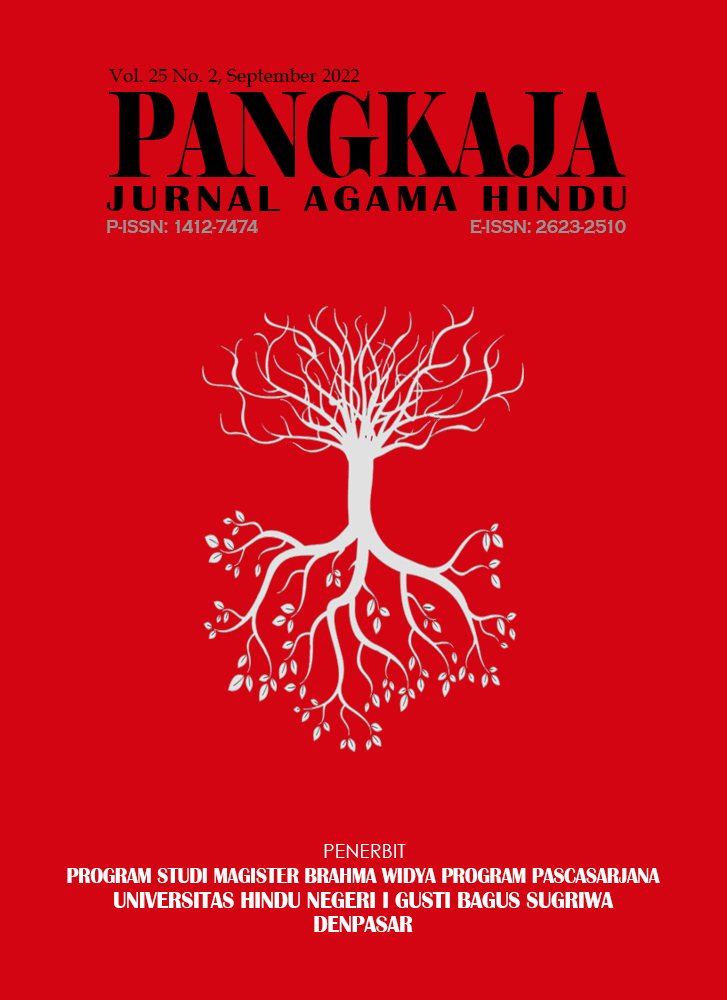TRADISI TINGKEBAN BAGI UMAT HINDU DI DESA SUKOREJO KECAMATAN BANGOREJO KABUPATEN BANYUWANGI (Studi Teologi Hindu)
DOI:
https://doi.org/10.25078/pjah.v25i2.2028Kata Kunci:
Tradition; Tingkeban; Hindu TheologyAbstrak
The Tingkeban tradition is a form of pregnancy ritual for the Hindu community in Java which has been carried out for generations and is intended for fetuses that are still in the womb. The Tingkeban tradition is carried out when the gestational age is seven months in the Javanese calendar starting from the beginning of time which refers to the first day when the mother's menstruation ends and will be carried out between before or after the fifteenth day. Because it avoids lunar eclipses between these dates. The Tingkeban tradition is not only carried out by Hindus and non-Hindu people, but all religions originating from the Javanese tribe carry out this Tingkeban tradition as a form of respect as well as repelling reinforcements so that later the fetus and expectant mother will always have smooth delivery during childbirth.
This research is a qualitative research with data collection techniques carried out in natural settings (natural conditions), researchers used techniques of observation, interviews, document study and literature study. The results of this study are the procession of implementing the Tingkeban tradition starting from the preparation of facilities and infrastructure, genduren or thanksgiving, breaking priyuk, splitting coconuts, splashing and changing clothes. The Tingkeban tradition has the following functions: (1) the function of preserving the tradition (2) the function of sradha and devotional services, and (3) a social function. The meanings contained in the implementation of the Tingkeban tradition are (1) the meaning of increasing sradha and devotional service, (2) the meaning of tattwa in the Tingkeban tradition, and (3) the meaning of the ceremony in the Tingkeban tradition.









